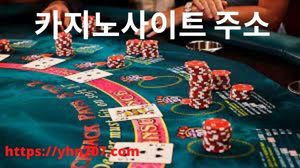blackjack card game
blackjack card game
blackjack, additionally called 21 and barge, betting game famous in gambling clubs all through the world. Its starting point is questioned, yet it is unquestionably connected with a few French and Italian betting games. In Britain since World War I, the casual game has been called barge.
Players desire to get a complete card worth of 21 카지노사이트 주소or to come nearer to it, without going over, than the vendor, against whom all wagering is finished. For this reason aces consider 1 or 11, face cards as 10, and the rest at their record esteem. A hand counting 21 on the initial two cards (an ace and a 10 or face card) is known as a characteristic or a blackjack. Suits are insignificant. In many assortments of the game, a player getting two cards of a similar position might part them, getting a second card for each, and play the two hands autonomously of one another. Another normal rule is to permit "multiplying down" with two cards that absolute 11 (in certain variations 11 or 10)— the player pairs the bet, turns up the cards, and takes another card facedown. In certain games a player wins extra by getting five cards without "losing everything" (going north of 21).
House rules in American club change. In club play every player puts down a bet, and afterward the vendor gives two cards to every player (both down, both up, or one down and one up, contingent upon the gambling club) and two to the seller's own hand (one up and one down; in British club the seller delays until all exchanges are over prior to managing the last card faceup). The players, one by one, call for additional cards managed faceup each in turn until they bust or "stand." Anyone managed a characteristic successes promptly except if the seller is showing an ace or a 10. Assuming that all players bust, the vendor wins minus any additional play. In any case, the vendor's downcard is uncovered, and, assuming the seller doesn't have a characteristic, any player's normal is paid off at one and a half times the bet; the seller who has a characteristic successes every one of the wagers aside from when there is a tie, or "push," with any other individual holding a whiz. With a count of 16 or less, the vendor draws cards each in turn until there is a count of at least 17. A seller who busts loses; in any case, the vendor pays anybody showing a higher count (without busting), and a push happens for players with a matching aggregate. All cards are gathered and removed from play before the following hand is managed.
As a gambling club game blackjack offers players에볼루션게이밍impressive extension for expertise, and fanatically committed players have been so effective in fighting the house edge by a relentless arrangement of card counting that many have been banished from play in significant club. Since a huge extent of high cards still in the deck builds a player's chances against the house, card counting basically relies upon making little wagers until a positive extent gets and afterward putting down a huge bet. With an end goal to hinder card counting, club currently utilize various decks, frequently reshuffling them well before the load of cards held in the shoe has been depleted, to limit any adjustment of the overall extents of high and low cards.
David Parlett
Syndication
ARTICLE
Presentation and Top Questions
Quick FACTS
MEDIA
Extra INFO
Home
Sports and Recreation
Games, Hobbies and Recreational Activities
Syndication
table game
BY The Editors of Encyclopedia Britannica | View Edit History
Syndication table game
Syndication table game
See all media
Related Topics: game
TOP QUESTIONS
What is the round of Monopoly?
Who planned Monopoly?
Where did the game Monopoly begin?
Syndication, land table game for two to eight players, in which the's player will probably remain monetarily dissolvable while constraining adversaries into insolvency by purchasing and creating bits of property.
Each side of the square board is separated into 10 little square shapes addressing explicit properties, railways, utilities, a prison, and different spots and occasions. Toward the beginning of the game, every player is given a proper measure of play cash; the players then, at that point, move around the board as per the toss of a couple of dice. Any player who lands on an unowned property might get it, yet, assuming the individual in question lands on a property카지노사이트 주소possessed by another player, lease should be paid to that player. Certain nonproperty squares require the player arrival on them to draw a card that might be good or troublesome. Assuming a player gains an imposing business model—that is, all of a specific gathering of properties—that player might buy enhancements for those properties; upgrades add generously to a property's rental expense. A player keeps on going around the board until the person is bankrupt. Chapter 11 outcomes in disposal from the game. The keep going player staying on the board is the champ.
Syndication, which is the smash hit secretly protected tabletop game ever, acquired prominence in the United States during the Great Depression when Charles B. Darrow, a jobless warming designer, offered the idea to Parker Brothers in 1935. Prior to then, at that point, custom made variants of a comparable game had flowed in many pieces of the United States. Most depended on the Landlord's Game, a tabletop game planned and protected by Lizzie G. Magie in 1904. She amended and reestablished the patent on her game in 1924. Outstandingly, the rendition Magie started didn't include the idea of a syndication; as far as she might be concerned, the mark of the game was to represent the possible abuse of occupants by avaricious landowners. Magie involved the Landlord's Game to advance a solution for such abuse—specifically, the single expense on land owners, a main social issue among the people who condemned land hypothesis as a reason for monetary treachery.
The Landlord's Game was all the while flowing in the mid 1900s as a high quality prepackaged game, and different varieties arose that fused the restraining infrastructure of properties. Among those advancing this rendition were the siblings Louis and Fred Thun, who deserted their patent endeavor in 1931 when records of Magie's 1904 patent became exposed, and Dan Layman, who named his game Finance yet, similar to the Thuns, didn't patent it. Darrow drew upon the prior models, effectively showcasing his form of Monopoly to retailers in the northeastern United States somewhere in the range of 1933 and 1934. Request before long overpowered his capacity to efficiently manufacture the game sets, however it took rehashed endeavors to persuade Parker Brothers of the game's legitimacy. When the organization procured the game from Darrow, Parker Brothers advanced Monopoly as the brainchild of an unemployed architect looking for a reasonable method for amusement during a period of monetary difficulty. Claims from others professing to have concocted Monopoly were settled by Parker Brothers.
Syndication became well known in numerous different areas of the planet. In the first North American sets, the properties were named for roads in Atlantic City, New Jersey. Remarkable among these is Marvin Gardens, which is an incorrect spelling of the genuine Marven Gardens in Atlantic City. Sets promoted in different nations might be changed to address a neighborhood city; for instance, London roads are utilized in the British variant. Imposing business model games likewise have been authorized with other North American urban communities as the subject (e.g., Chicago); conspicuous nearby tourist spots and focal points ordinarily supplant road names as properties.
The Editors of Encyclopedia Britannica
This article was most as of late changed and refreshed by Adam Augustyn.



Mga Komento
Mag-post ng isang Komento